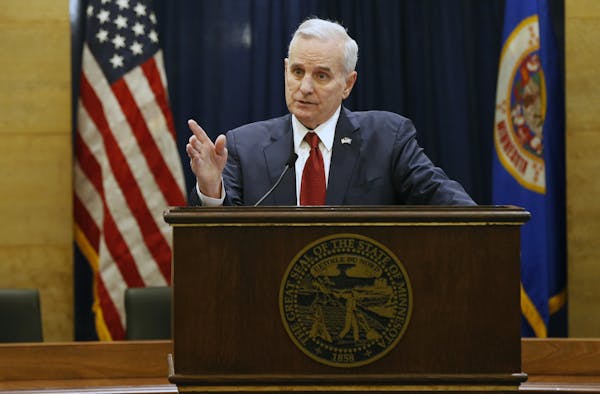The Minnesota Senate passed a bill late Thursday to bring the state into compliance with the federal Real ID law as a January 2018 deadline nears.
If the state misses the deadline, Minnesotans will need a passport or a special enhanced ID — rather than a standard driver's license — to board an airplane or enter a federal facility or military base.
The Senate bill, which passed 60-7, should allow Minnesota a reprieve, said the chief author of the bill, Sen. Eric Pratt, R-Prior Lake, but only with eventual compromise with the House.
"The federal government just wants us to have a plan to move forward. As long as we're moving forward and making progress, they'll grant us the extension," he said.
For more than a year, lawmakers have been stymied by an inability to compromise on a bill that would bring Minnesota into compliance with a 2005 federal law that sought to modernize driver's licenses and other forms of identification to prevent identify theft and curtail illegal entry into the United States by potential terrorists and other criminals.
In 2009, the Legislature passed — nearly unanimously — a bill prohibiting the Department of Public Safety (DPS) from complying with the federal law, responding to fears about government intruding into Minnesotans' privacy and collecting personal data.
The Senate bill that passed late Thursday was a second attempt after a similar bill failed.
The new version was stripped down and merely removed a prohibition on DPS from complying with the federal law, but also does not authorize the agency to move forward. (Currently, Minnesotans can volunteer to pay extra for an enhanced ID.)
The Senate and House versions are different, which means they will have to work out a compromise — over the volatile issue of driver's licenses for undocumented immigrants — before sending it to Gov. Mark Dayton for his signature.
The House in February passed a Real ID compliance bill that firmed up a current DPS practice to not issue driver's licenses to Minnesotans in the country illegally, making it a law instead of a rule.
Rep. Dennis Smith, R-Maple Grove, said the House will insist on language that will prevent DPS from issuing driver's licenses to undocumented immigrants.
Real ID legislation, he said, "is about people flying on airplanes in Minnesota, not about complex immigration policy." DPS has already said it cannot issue licenses to undocumented immigrants without legislative authority.
Sen. Tom Bakk, DFL-Cook, the minority leader, said negotiations will begin, but was blunt about what to expect: "It doesn't matter what the House thinks. The Senate can't pass what the House passed."
Bakk is referring to the fact that Senate Republicans cannot pass a bill without some DFL votes because a few Republicans concerned about privacy issues are opposed to Real ID compliance.
For instance, Sen. Warren Limmer, R-Maple Grove, has warned that Minnesotans could be putting their personal data at risk if they agree to have their information shared across a much larger network.
J. Patrick Coolican • 651-925-5042
Guest lineups for the Sunday news shows
West Virginia will not face $465M COVID education funds clawback after feds OK waiver, governor says
Idaho group says it is exploring a ballot initiative for abortion rights and reproductive care

